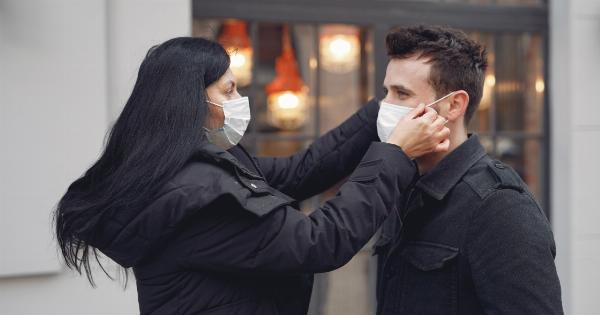Being pregnant can be a wonderful and exciting time for expecting mothers, but it can also make them more susceptible to colds and flu. In fact, research shows that pregnant women are more likely to get sick than the general population.
Moreover, certain cold and flu medications can be harmful to the developing fetus. Therefore, it’s important to know some safe and effective remedies for treating colds during pregnancy.
Stay Hydrated
Staying hydrated is essential during pregnancy, especially when you’re sick. Drinking plenty of fluids can help to alleviate congestion and prevent dehydration, which can lead to other complications.
You can try drinking water, juices, soups, or herbal teas to help keep you hydrated. However, you should avoid beverages that contain caffeine, alcohol, or added sugars.
Get Plenty of Rest
Rest is important when you’re feeling under the weather, especially during pregnancy. Your body is working hard to keep both you and your growing baby healthy, and getting enough sleep can help your body fight off infections.
Make sure to get plenty of rest, and try to take naps during the day if you’re feeling tired.
Use a Humidifier
A humidifier can be helpful in relieving cold symptoms such as coughing, congestion, and sore throat. It adds moisture to the air, which can help to soothe dry nasal passages and reduce irritation.
You can also add essential oils such as eucalyptus or peppermint to the humidifier to help clear up congestion.
Try Saline Nasal Spray
Saline nasal sprays can help to relieve congestion without posing any risk to the developing fetus. They are made of a simple saltwater solution that helps to moisten and flush out nasal passages.
You can buy saline nasal sprays at your local pharmacy or make your own by mixing a quarter teaspoon of salt in a cup of warm water.
Gargle with Salt Water
Gargling with salt water can help to relieve sore throat symptoms such as inflammation and swelling. It works by reducing irritation and killing bacteria in the throat.
Mix a half teaspoon of salt in a cup of warm water and gargle for 30 seconds, then spit it out. Repeat this several times a day, as needed.
Use a Neti Pot
A Neti pot is a small teapot-like device that is used to flush out nasal passages with saline solution. It can help to relieve congestion, reduce inflammation, and prevent sinus infections.
However, it’s important to use distilled or sterile water to avoid the risk of infection. You can also add a quarter teaspoon of baking soda to the solution to help reduce irritation.
Eat Foods that Boost Immunity
Eating a healthy diet that is rich in immune-boosting nutrients can help your body fight off infections and speed up recovery. Try to eat plenty of fruits, vegetables, lean proteins, and whole grains.
Some examples of foods that are high in immunity-boosting nutrients include oranges, sweet potatoes, spinach, almonds, and yogurt.
Take a Warm Bath
Taking a warm bath can be relaxing and soothing when you’re feeling sick. The warm water can help to ease muscle aches, reduce inflammation, and improve circulation.
You can also add some Epsom salts or essential oils like lavender to the bath to help further enhance relaxation and reduce stress.
Avoid Harmful Medications
Some cold and flu medications can be harmful to the developing fetus and should be avoided during pregnancy. These include over-the-counter medications such as aspirin, ibuprofen, and pseudoephedrine.
It’s best to consult with your healthcare provider before taking any medications, including natural remedies, to ensure they are safe for you and your baby.
Conclusion
Colds and flu can be challenging to deal with, especially when you’re pregnant. However, there are many safe and effective remedies that can help alleviate symptoms and promote healing.
Staying hydrated, getting plenty of rest, using a humidifier, and eating immune-boosting foods are some of the ways you can safely treat colds during pregnancy. Remember to always consult with your healthcare provider before taking any medications or supplements, as they can provide guidance on what is safe for you and your baby.




























